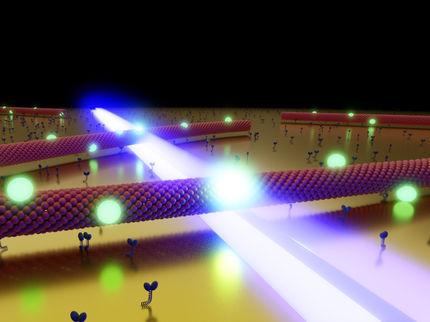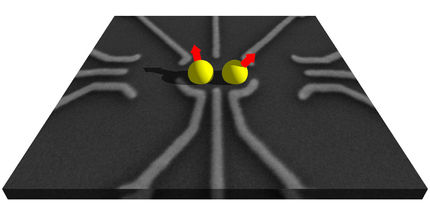A quantum dot energy harvester
Turning waste heat into electricity on the nanoscale
A new type of nanoscale engine has been proposed that would use quantum dots to generate electricity from waste heat, potentially making microcircuits more efficient.
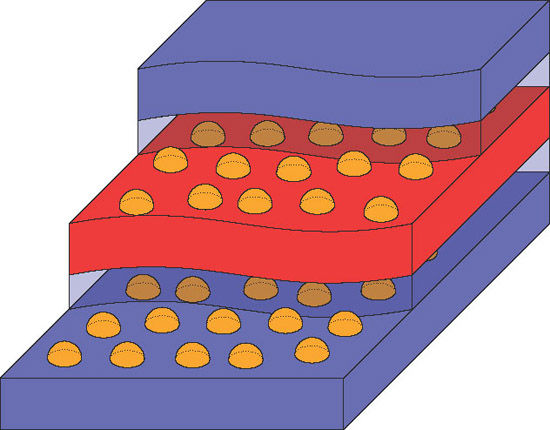
An array on nano energy harvesters in what the researchers call a "swiss cheese" arrangement.
"The system is really a simple one, which exploits certain properties of quantum dots to harvest heat," Professor Andrew Jordan of the University of Rochester said. "Despite this simplicity, the power it could generate is still larger than any other nanoengine that has been considered until now."
The engines would be microscopic in size, and have no moving parts. Each would only produce a tiny amount of power – a millionth or less of what a light bulb uses. But by combining millions of the engines in a layered structure, Jordan says a device that was a square inch in area could produce about a watt of power for every one degree difference in temperature. Enough of them could make a notable difference in the energy consumption of a computer.
A paper describing the new work is being published in Physical Review B by Jordan, a theoretical physics professor, and his collaborators, Björn Sothmann and Markus Buttiker from the University of Geneva, and Rafael Sánchez from the Material Sciences Institute in Madrid.
Jordan explained that each of the proposed nanoengines is based on two adjacent quantum dots, with current flowing through one and then the other. Quantum dots are manufactured systems that due to their small size act as quantum mechanical objects, or artificial atoms.
The path the electrons have to take across both quantum dots can be adjusted to have an uphill slope. To make it up this (electrical) hill, electrons need energy. They take the energy from the middle of the region, which is kept hot, and use this energy to come out the other side, higher up the hill. This removes heat from where it is being generated and converts it into electrical power with a high efficiency.
To do this, the system makes use of a quantum mechanical effect called resonant tunneling, which means the quantum dots act as perfect energy filters. When the system is in the resonant tunneling mode, electrons can only pass through the quantum dots when they have a specific energy that can be adjusted. All other electrons that do not have this energy are blocked.
Quantum dots can be grown in a self-assembling way out of semiconductor materials. This allows for a practical way to produce many of these tiny engines as part of a larger array, and in multiple layers, which the authors refer to as the Swiss Cheese Sandwich configuration (see image).
How much electrical power is produced depends on the temperature difference across the energy harvester – the higher the temperature difference, the higher the power that will be generated. This requires good insulation between the hot and cold regions, Jordan says.
Most read news
Other news from the department science
These products might interest you
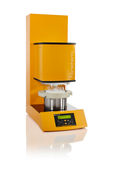
FIBRETHERM by C. Gerhardt
Automatic Fibre Extraction for Feed Analysis
FIBRETHERM from C. Gerhardt: Efficient – Precise – Method-Compliant
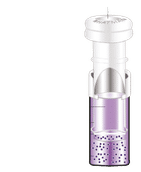
Mini-UniPrep™ by Cytiva
Improved HPLC Sample Preparation
Save 66 % sample preparation time and reduce costs by 40 %

Glass and quartz microfiber filter by Cytiva
Request a glass microfiber sample pack to meet your battery development needs
Delivering efficient and consistent results

GF/C and 934-AH RTU (Environmental) by Cytiva
Meet wastewater regulations with the right filter
Streamline lab operations and ensure high-quality results
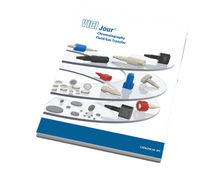
VICI Jour Katalog 15INT by VICI
The VICI Jour Catalog - Accessories for (U)HPLC and Liquid Handling
Capillaries, Tubing, Fittings, Filters, Safety-Products, Tools and much more
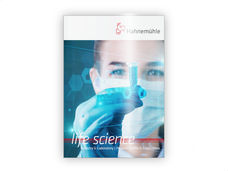
Hahnemühle LifeScience Catalogue Industry & Laboratory by Hahnemühle
Wide variety of Filter Papers for all Laboratory and Industrial Applications
Filtration Solutions in the Life Sciences, Chemical and Pharmaceutical Sectors

Whatman filtration product guide by Cytiva
New filtration catalog - a wealth of information on 286 pages
Discover the perfect filters for your laboratory application

Get the chemical industry in your inbox
By submitting this form you agree that LUMITOS AG will send you the newsletter(s) selected above by email. Your data will not be passed on to third parties. Your data will be stored and processed in accordance with our data protection regulations. LUMITOS may contact you by email for the purpose of advertising or market and opinion surveys. You can revoke your consent at any time without giving reasons to LUMITOS AG, Ernst-Augustin-Str. 2, 12489 Berlin, Germany or by e-mail at revoke@lumitos.com with effect for the future. In addition, each email contains a link to unsubscribe from the corresponding newsletter.
